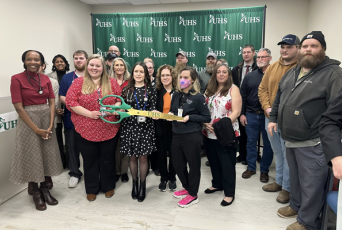
Breath Alcohol Testing
All breath alcohol tests are performed by certified “Breath Alcohol Technicians” and include confirmation of positive results. The evidential breath testing (EBT) equipment used for this service is approved by the National Highway Safety Administration. Prior to testing, the individual will be required to sign a testing form (U.S. Department of Transportation (DOT) or non-regulated) Breath Alcohol Testing Form,” which documents the individual will submit to a breath alcohol testing, the name of the Breath Alcohol Technician conducting the test, and the results of the test. The procedure for breath alcohol testing is available on request.
Results will be given to the Designated Employer Representative (DER) in a confidential manner. Such reports may be in writing, in person, or by telephone or electronic means. The Breath Alcohol Technician shall ensure immediate transmission of results that require the employer to prevent the employee from performing a safety Sensitive function.
UHS News
-
 UHS Launches MyChart “On My Way” for lab appointment online schedulingFebruary 17, 2026
UHS Launches MyChart “On My Way” for lab appointment online schedulingFebruary 17, 2026UHS has introduced a new digital feature designed to make laboratory visits faster, easier, and more convenient for patients. Patients can now use MyChart’s “On My Way” to save your spot in line for a future time that day.
-
 Know where to go for your medical concernFebruary 16, 2026
Know where to go for your medical concernFebruary 16, 2026It can be tough to distinguish where to go for medical care when your symptoms feel unbearable, and your primary care provider is unavailable. Here are some key differences to help you decide.
-
 UHS supports tobacco cessation in partnership with St. Joseph's HealthFebruary 13, 2026
UHS supports tobacco cessation in partnership with St. Joseph's HealthFebruary 13, 2026UHS is pleased to announce its continued collaboration with the Central New York Regional Center for Tobacco Health Systems at St. Joseph's Health. Through this partnership, UHS has strengthened its tobacco-dependence treatment policy, aligning it with the Public Health Service Clinical Practice Guidelines.
-
 UHS Pediatrics Upper Front Street holds ribbon-cutting ceremonyFebruary 13, 2026
UHS Pediatrics Upper Front Street holds ribbon-cutting ceremonyFebruary 13, 2026On Thursday, February 12, UHS hosted a ribbon cutting to celebrate the opening of UHS Pediatrics Upper Front Street. The practice, which previously served patients on Chenango Bridge Road, welcomed its first patients at the new location on February 2.

